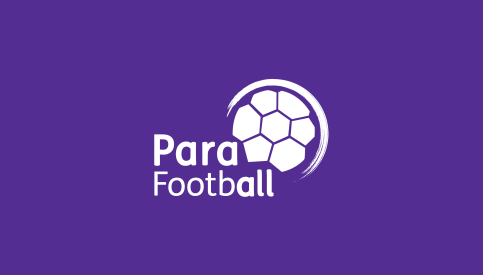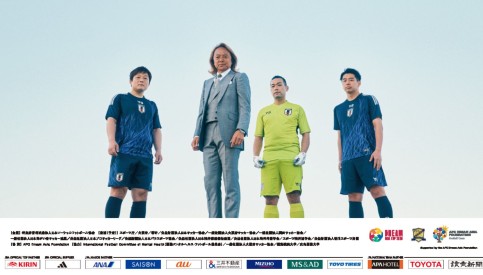Para Football part of driving social change
Para Football part of driving social change
The founding partners of the Sport and Social Change Alliance came together as experts in their respective fields after extensive work together with football governing bodies, clubs and brands.
Founding Organisations
We have come together to work on, and give voice to, the common aspiration of a sport industry that can be at the heart of social, environmental and economic change. We know the power that sport has to create social change. The organisations represented within the Sport and Social Change Alliance work as independent organisations but come together as a single entity to harness their experience in sport and social change.
In our roles as experts on specific issues – from the intersection of health and sport, to stakeholder involvement and governance reform, to diversity, equity, and inclusion, and more – the Sport and Social Change Alliance drives for positive impact and responsibility in sport.
Register and Join our launch webinar
The Sport & Social Change Alliance webinar series. Leading the discussion on the value and function of sport in society.
- Tue, 28 June 2022
- 13:00 – 16:00 CEST
- Online
About this event
We recognise the contribution and enormous potential of sport as a driver for social change at a time when society is changing at a rapid pace. To realise this potential, we believe that sport organisations of all sizes within the industry must become more inclusive, socially impactful, and environmentally considerate.
The SSCA webinar series sets out to support sport organisations in their efforts by providing a deeper insight into, and understanding of, the issues that currently exist; how individuals and groups are being affected by them; and how they can be, or are being, addressed through sport.
Here is the session-by-session breakdown:
Session 1: Does sport make health inequalities better or worse? (40 mins)
Health inequalities are concerned with differences in the status of people’s health, primarily life expectancy and the quality of their life, in particular the later years of life. Health inequalities are avoidable, unfair and systematic differences in health between different groups of people. This session will look at how sport can both exacerbate and moderate health inequalities within our societies.
Moderator: Matthew Philpott - Executive Director, European Healthy Stadia Network CIC
Guests:
- Robin Ireland - Director of Research for Healthy Stadia with a doctorate from the University of Glasgow on the Commercial Determinants of Health in Sport
- Michael Salla - Director of Health and Sport at Everton in the Community
Session 2: How can sport really support refugees? (40 mins)
This session takes participants on a walk through some examples of how football is contributing to the integration and inclusion of Ukrainian refugees across Europe. The discussion will focus on two interlinked themes: 1. the specificities of running programmes during an on-going crisis and therefore ever-changing landscape / variables, and 2. the challenges and benefits of involving girls and women in sport and inclusion projects.
Moderator: Piara Powar - Executive Director at Fare network
Guests:
- Nick Sore - Senior Refugee Sports Coordinator at UNHCR
- Oleksandr Fomichov - Founder and Head Coach at League of Tolerance
- Juliane Schlickenrieder - Social Worker and Project Coordinator at Champions ohne Grenzen e.V.
Session 3: What does women's sport need to do to become more inclusive? (40 mins)
The women’s EURO is expected to attract record viewing figures. Never before has the women’s game captured the minds, hearts, and investment of so many as it has today. This session explores just why we’re seeing such a boom in women’s football, how the landscape looks in other sports, how this has impacted grassroots initiatives and the industry in general, and why/how women’s sport still needs to become more inclusive.
Moderator: Joanna Deagle - Managing Director of CAFE and Stichting CAFE
Guests:
- Haïfa Tlili - Sociologist at Rhéa Laboratory, VUB University
- Gemma Fay, Head of Women's and Girls' Strategy at Scottish Rugby Union and former Captain of the Scottish Women's National football team
Session 4: Panel: What is the future direction of sport and social change initiatives? (45 mins)
We’re living in a time of unfettered social change where winning at all costs doesn’t have quite the same appeal as perhaps it once did. What has sport’s role been, and how does it affect the way that we approach sport in the future?
Moderator: Mel Young - President and co-founder Homeless World Cup; Chairman Sportscotland; co-founder New Ism; co-founder Elders Council for Social Entrepreneurs
Guests:
- Lucy Mills, Program Manager at FC Barcelona Foundation and member of the Board of Directors of Lewes FC
- Riikka Rakic, Head of Sustainability at the International Biathlon Union
- Paul Hunt - Senior Project Manager at the International Platform on Sport and Development (sportanddev)
Webinar host: Daniel Cade - Founder at Responsible Sport









